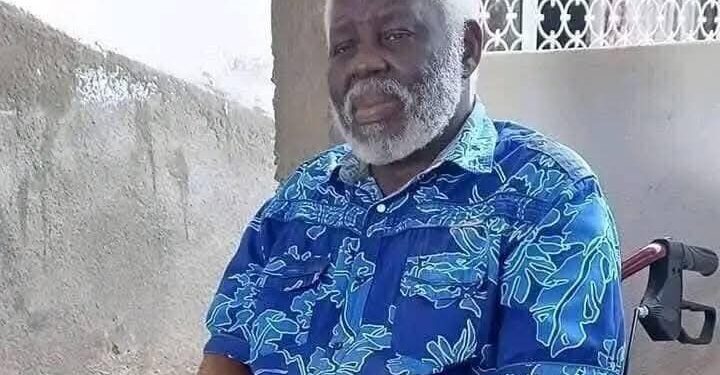Chief Justice Ayah Paul Abine, a towering figure in Cameroon’s history, is now history, but his contribution to shaping Cameroon’s political and legal landscape lives on.
His death on December 25, 2024, immortalised him as one of the reputable English-speaking Cameroonians who have stood their grounds for justice amid concerns of marginalisation.
Justice Ayah Paul’s name is synonymous with justice, integrity, and the rule of law in Cameroon.
Born in Akwaya in 1950, the 1976 graduate of the National School of Administration and Magistracy (ENAM) began his legal career as Vice President of the Buea Court of Appeal.
He further rose to become the only Anglophone who has ever been Advocate General at the Supreme Court of Cameroon.
His career, marked by notable achievements and fearless advocacy, earned a place in the Cameroons’ legal history.
Ayah Paul’s legal acumen was not only recognised within Cameroon but also respected internationally.
One of his defining contributions to Cameroon’s legal landscape was his advocacy for judicial independence.
He consistently emphasised the importance of a judiciary free from political interference, arguing that it was crucial for upholding democracy and protecting citizens’ rights.
Although Ayah’s outspoken stance often put him at odds with powerful figures, he remained resolute, refusing to compromise his principles.
His advocacy for a return to a federal system of government came at a high personal cost.
On January 21, 2017, amid the escalating armed conflict in Cameroon’s English-speaking regions, Cameroonian authorities arrested and detained him without trial for over eight months.
A presidential decree on August 30, 2017 later set him free.
Ayah Paul the Politician…
Ayah Paul Abine was not just a politician; he was a symbol of courage, integrity and defiance against systemic injustices in Cameroon.
In 2002, Ayah transitioned into politics, serving as a Member of Parliament for Akwaya under the ruling Cameroon People’s Democratic Movement (CPDM).
He became Chairman of the Foreign Affairs Committee of the National Assembly in August 2007.
However, his tenure was marked by his outspoken criticism of proposed constitutional amendments that finally removed presidential term limits.
Despite his opposition, Parliament adopted the amendments, allowing President Paul Biya to stand for re-election in 2011.
Dissatisfied with the direction of the CPDM, Ayah Paul Abine resigned from the party on January 3, 2011, and joined the opposition.
He founded the People’s Action Party (PAP).
He stood as a presidential candidate in the 2011 elections, advocating for a return to federalism and greater autonomy for Cameroon’s regions, particularly the Anglophone regions.
However, results from the electoral body, Elections Cameroon (ELECAM), showed that Ayah Paul Abine received less than 1 percent of the vote.
Incumbent President Biya dominated the vote, winning over 77 percent, amid allegations of irregularities and electoral malpractice.
Ayah the humanitarian…
Amid Cameroon’s turbulent sociopolitical landscape, Ayah Paul Abine, through the Ayah Foundation, dedicated his post-judicial and political career to humanitarian efforts.
The foundation provided food, healthcare, education, and shelter to those most in need.
Founded in 2018, the Ayah Foundation, a non-governmental organisation, has been providing aid to victims of the Anglophone conflict.
The foundation has since become a lifeline for internally displaced persons (IDPs), orphans, and other vulnerable groups.
Notably, it has made over 10 visits to Adagom UNHCR refugee camp in Nigeria with food supplies.
Ayah’s humanitarian work has not come without challenges.
The government has also repeatedly accused the foundation of funding separatist activities.
The foundation has been summoned several times at the State Defence Secretary (SED) for questioning. Yet the non-governmental organisation remained steadfast in its mission to alleviate suffering.



